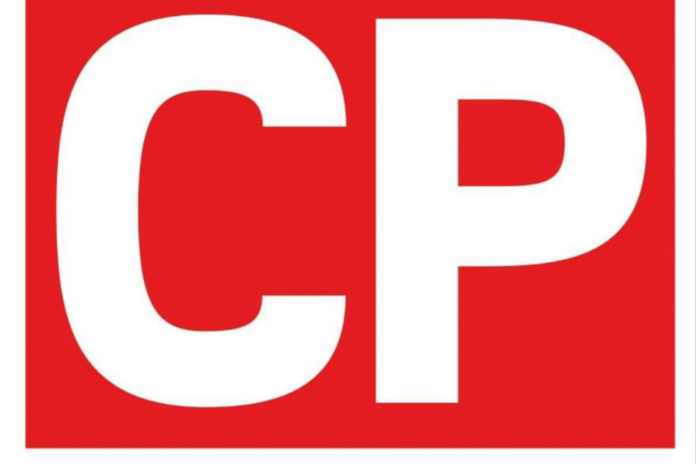Following a hearing before a district court mediation referee, the Christian League of Minnesota’s attorney is preparing to file a lawsuit challenging the Minnesota Statute on harassment which figured into the restraining order that leads to the hearing.
On July 11, District Court Referee Melissa Houghtaling lifted a March 28 harassment restraining order issued to prevent the Christian League of Minnesota from contacting potential advertisers in City Pages Magazine. City Pages is owned by the Star-Tribune and is listed online as an alternative newspaper.
The agreement blocks for two years the Christian League from contacting prospective City Page’s advertisers by any means. The Christian League had sent postcards to prospective advertisers to draw their attention to advertisements for “strip clubs, porn stores, and phone sex ads.”
Christian League attorney, Thomas More Society Special Counsel Erick Kaardal, in a recent interview told of plans to file a lawsuit in district court to challenge the constitutionality of a Minnesota statute 609.748 governing harassment complaints. The attorney said the statute wording, which hinges on the phrase “unwanted words,” is “overbroad. “ Among other issues, the law could be used to prevent “politically-protected speech.”
“If unwanted words are harassment, what is free speech?” he questioned. As currently written and applied, the law represents overreach. (The government) is going to use the harassment restraining order to shut down free speech.”
Ann Redding, President of the Christian Action League of Minnesota, a concerned grandmother, said her organization intends to adhere to the agreement to avoid further court action related to City Pages. As the founder of the group which began in 2010, she said the mission is tightly focused on the Twin Cities to block pornography and end human trafficking in the “hypersexualized culture” of today.
She established her organization expressly to address the damage that pornography and human trafficking cause to families. The founding meeting was held at the home of a friend who had five chairs. Redding said she told her friend if more than five people showed up, she would sit on the floor. As it happened only she and her friend were at that inaugural meeting where the Christian League of Minnesota began.
One of her objections to City Pages is that it’s freely distributed and available to anyone, including children who may be exposed to ads for strip clubs and other sexually-oriented content. She had an early encounter when she discovered the tabloid was being distributed at a family restaurant years ago. She said she approached the on-site manager who initially side-stepped her complaint, saying that top management had approved distribution in their restaurants. But Redding came back to press further and learned that management had reconsidered and soon thereafter the tabloid was dropped from the restaurant’s locations.
On another front, Redding, through the Christian League of Minnesota, worked to curtail the availability of porn at lodging sites. The evolution of technology made that issue a moot point since visitors now bring their own porn with them, she said.
In 2012, Redding successfully established a 501 (c) (3) tax-exempt status for the Christian League of Minnesota. That year, she also upgraded The Beacon, her group’s publication. Currently, there are about 150 subscribers. The masthead states the paper’s mission, “Protecting Innocents, Preserving Families.” The publication is distributed by three churches that offer or refer help for addicted individuals and also is passed along by members. Redding said her group will continue to oppose porn and human trafficking on fronts other than City Pages.
How serious is human trafficking here? Minnesota statistics from national hotline humantraffickinghotline.org, which compiles annual data on human trafficking calls and cases, shows that a high in number of calls, 301, and cases, 66, occurred in 2016.
Most recently, in 2018, 110 calls to authorities were logged, of which 45 became investigated cases. It should be noted that these are data captured by reports made to authorities. The total number of unreported human trafficking incidents is unknown and presumably is much higher than those reported.
| Annual Human Trafficking Calls and Cases in Minnesota | |||||||
| Year | 2018 | 2017 | 2016 | 2015 | 2014 | 2013 | 2012 |
| Calls | 110 | 254 | 301 | 231 | 199 | 268 | 114 |
| Cases | 45 | 74 | 66 | 51 | 34 | 59 | 34 |
| Source: National Human Trafficking Hotline |
Application of the Minnesota statute on harassment “is outrageous because it applies to all political speech, no exception here for political speech, “ attorney Kaardal said. And, statute wording prevents the court from considering that Redding’s postcards to prospective City Pages advertisers may represent communication protected by the First Amendment. The statute as written forces the court to focus solely on the concept of “unwanted words,” the basis of the harassment complaint from City Pages.
“It’s ridiculous how this applies to political speech,” he said, adding, “the Me-Too people do far, far worse, trying to drive advertisers away (from conservative communication sources.).” The statute is used thousands of times in harassment cases, he said.
College campuses provide one example of how this concept blocks free speech where “the universities regulate speech … it’s all about unwanted words. Those words are unwanted in the classroom. Those words are unwanted in this conversation, and, unfortunately, often those words are Christian and conservative.” Social media sites are doing the same thing regarding unwanted words, modifying algorithms to identify and block public posts.
“The statute has a systemic problem in that peoples’ free speech isn’t protected, so you go into court and say, ‘Hey, look , the statute’s messed up…”
“When we won in the U.S. Supreme Court last year, they said ‘No political t-shirts in the polling place,’ and then, our complaint was the judges were stopping people with a conservative themed t-shirts from voting — we collected the evidence to prove it, so then the court said, ‘We’re just going to say the statute’s unconstitutional because it’s so overbroad that we’re going to deem it unconstitutional in every application.”
Kaardal said the lawsuit he will file reaches far beyond the First Amendment rights of the Christian League of Minnesota, and the statute needs to be changed “to protect the First Amendment rights of everybody.”
“If you want to ban political speech, what better phrase than ‘unwanted words?’ he asked. “Christian speech in the public sphere is unwanted by the left so they use the harassment statute to suppress the speech.”
Kaardal said he expects to file the lawsuit challenging Minnesota’s harassment statute within the next few months.












